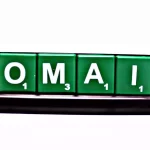If you want to learn how to protect your blog, you’ve come to the perfect place. I strongly advise you not to miss any sections of this blog post so you can fully understand the tips on how to protect your blog.
Nowadays, there is risk everywhere! Your website gets assaulted billions of times every hour. Your host could set fire to himself. Competitors can use your domain name to impersonate you. Spammers can contact you through your contact forms and leave comments on your blog entries.
Learning how to protect your blog will provide you with opportunities and peace of mind.
Because of the precautions I took to protect my blog, I now sleep considerably better than I did previously, knowing fully well nothing can happen to my blog.
In this article, I’ll go over everything you need to know to secure and protect your blog.
But before, let’s check out a few questions…
Related Article: How to copyright your blog.
Why Do You Need To Protect Your Website?
If you have created a website over a lengthy period, from a few months to more than a year, paying a lot of money and effort to produce content, perform SEO, optimize, and then, one day, your website gets hacked or breaks out.
You try to access the website but can’t, which implies that all sources of money and prospective customer files generated by your website are gone.
That hurt a lot!
However, recovering your website is still possible if you employ an expert, which will cost you a ton of money. In order to prevent this from happening, you must protect your website from cyber-attacks.
Building a website and establishing a blog that grows in popularity and money is one thing; protecting the blog so that it is constantly maintained and stable is another.
For those who are new to blogging, the probability of being mistreated is quite low because your website is still a “newbie,” not yet very competitive, and has not yet garnered anyone’s notice.
After a time when the website becomes large enough, begins to steadily grow traffic, and ranks numerous keywords, you can be easily targeted by rivals’ poor plays or planned attacks by hackers.
As a result, because prevention is better than cure, you must understand how to protect your website and implement the essential safeguards as soon as possible.
Avoid wasting all of your hard work, money, and time.
How Does A Site Get Hacked?
There are three basic reasons why a site gets hacked.
When it comes to hacking, there are several methods and factors that might result in a website being hacked, but I will just mention three of the most typical ones:
- The theme or plugin you’re using is infected with a virus, and you “like” utilizing freely available web themes and plugins.
- Hackers targeted your host.
- You share your website administrator password with others.
Being as cautious as possible about these three things can make you feel more safe when creating content for your website.
How Hackers Attack Blog
Every website on the Internet is under continual attack, whether it is a phpBB forum or a WordPress site; hackers are looking into every website.
A hacker may scan thousands of sites or attempt to log in hundreds of times each day.
And that is only one hacker. Several hackers are attacking the sites at the same time.
It is rarely attempted by a single individual. Hackers employ automated tools (Bot) to cruise the web in search of specific flaws in websites.
Bots are automatic software programs that crawl the web. To distinguish them from scraper bots (software that seeks to duplicate material), I call them hacker bots.
Now, I’ll show you ten techniques to protect your blog.
How To Protect Your Blog (Avoiding Hackers/Malware)
Nothing is more distressing for a website owner than realizing one day that your website has been hacked. So here’s how to minimize and protect your blog’s exposure.
Update on a regular basis
In order to protect your blog, you must regularly update your website. An update does more than just add new features. An update addresses security flaws. So, protect your blog by updating it.
According to 2023 global data by Infoguard Cyber Security, “95% of websites are at risk of being hacked due to outdated software.”
I propose that you update your blog once a week. It’s pointless to update as soon as they’re available because you can run into issues.
Wait a few days for more updates to be added to remedy any issues that this may create.
Similarly, keep backups of your website before each upgrade to avoid accidentally deleting anything.
Make a backup of your blog.
Backing up your blog will not prevent your site from being hacked, but it will ensure that if you are hacked, you can easily get your backup without losing any of your work.
You can backup your blog in two ways:
- Create backups with your host: most hosting providers provide this option (paid or free, depending on your plan).
- Use a plugin or a third-party service to back up your data: this method is more secure in the case of a host failure.
The optimal solution is to combine the two to ensure that your websites are never lost. If you have backups of your blogs, you can always reinstall them if something goes wrong.
Above all, remember to schedule these backups on a regular basis (at least weekly) so that you never lose too much data.
Use An SSL Certificate To Protect Your Website.
You must have an SSL certificate to fully protect your blog. SSL certificates provide a safe link between your blog and the browsers of your readers, encrypting all data passed between the two.
SSL protects your visitors’ personal information, including names, email addresses, and payment card numbers, from being intercepted by hackers.
When visitors see the green padlock emblem in their browser’s address bar, they know your blog is safe, and their information is secured. This can result in more visitors and interaction with your blog.
Set Up A Security Plugin.
While a reputable web host can help protect your site, you will also want a security plugin. This is not an option; it is required.
There are several security plugins available, including WordFence, Sucuri, Security Ninja, and All In One WP Security & Firewall.
Many of them offer mostly effective free versions, but you can also spend a few dollars on premium versions to ensure your blog’s total protection.
All you have to do is download the plugin, install it, and then tweak the parameters on each page.
These plugins have various features, such as protection against brute force assaults, password security, IP filtering, and so on, as well as customizable alarms to notify you in real time of security issues on your website.
Install Only Reputable Plugins.
Hackers can easily get access to your blog via the plugins you install. When you install a plugin, you give it access to your WordPress installation’s core files.
This is why you should exercise extreme caution while installing plugins on your blog. They might have a security flaw or even be exploited by hackers like basic Trojan horses.
Read our full guide on The best WordPress plugins for bloggers.
Be Cautious With Whom You Share Your Login Details.
Unless absolutely essential, try not to disclose your login information to anybody. However, if you must (for example, with your VA or website designer), make sure it is someone you trust.
Don’t give your admin login to a random Fiverr seller!!
Give them a unique login with restricted access to your website, if at all possible. Users can be given many different types of tasks.
Someone can publish and maintain their own material if you give them the role of author, but they won’t be able to modify or use admin tools.
These various responsibilities can be found under USERS => ADD NEW USER.
Password protection
This may appear easy, but it is crucial. You want to design a password that you know will be easy to remember in the future.
As a result, the most popular password remains 123456. However, you must make it even more difficult.
Make use of a mix of special characters, numbers, and letters.
Also, avoid terms that can be easily guessed, such as your birthday or your children’s names… If a hacker has access to further information about you, they will be able to estimate.
On your computer, you need to create a log in password. Furthermore, the password must comprise a range of characters, such as letters, numbers, and symbols, among others.
Of course, in addition to computers, other devices and accounts require a secure password. You can set a unique password to a device or account if possible.
Protecting your blog using legal notices
Legal notifications must be written while creating a website. They specifically control the usage of your website’s content:
- Privacy Statement
- Disclaimer
- Terms and Conditions
Simply said, you must have them on your blog (even before you formally launch) in order to comply with the laws and protect yourself and your blog from legal action.
Using Google to protect the content of your website
Google can assist you in protecting your work against plagiarism (or at least combating it):
- Add a canonical tag to your content (in the head of the protected pages) to alert Google of the original content and prevent it from punishing you if it is copied;
- Use a plugin to prevent copying and pasting on your website and plagiarism. You can, for example, install the WordPress plugin WP material Copy Protection No Right Clic or Easy Watermark for your photos;
- Receive an email alert from Google if your site material is duplicated on another website.
How To Protect Your Site Content From Being Copied?
Your blog content can be copied and pasted into any website by anybody in the globe. After a few adjustments, they can claim your content as your own.
Here are some methods to avoid and protect your blog content against copying:
Turn off the text selection on your blog.
Many people copy content from other people’s blogs. As a result, prohibiting users from utilizing copy and paste on your blog will make the procedure much more difficult.
This prevents users from copying/pasting your texts (in principle). Secure Copy Content Protection is the WordPress plugin I suggest for this.
Add a watermark to your photographs.
If you make use of unique photos in your blog, Adding a watermark to your photographs is one of the simplest methods to protect them.
It not only shows that you own the copyright to your photographs, but it also makes others think twice about stealing them (or even hotlinking to them) because they will have your blog’s name all over them.
If you don’t know how to get images for your blog, Read our guide on how to get Free stock photos for bloggers.
Do I Need Security For My Blog?
Do I need security for my blog? Without a doubt, Yes!
When uploading anything on the Internet, security should be one of your main considerations. It could sound a little bit obvious.
But this is what a lot of bloggers don’t think about, forget to do, or put at the bottom of the do list to be done.
It is essential to have security for your blog as it can prevent many problems down the road.
Blogs are prone to security concerns, just like any other website. Your blog may be attacked at any time by viruses, hackers, or a slew of other risks you are unaware of.
Google discovered a 180% surge in pirated websites last year. With over 30,000 website hacking incidents recorded daily and an estimated $10 trillion in yearly cybercrime damage projected by 2025, blog security is more crucial than ever.
Protecting your blog means protecting all of your hard work, time, and effort, and your blogging money, and it also means you will blog more productively. (For example, figuring out a hack on your blog can take hours, if not days, of your valuable blogging time.)
Conclusion
Voila, that’s all! Together, we have gone through the best concrete actions to put in place to protect your blog.
Being a blogger means more than just starting a blog.
There are several moving pieces aside from creating content, designing advertising content, and ensuring that people notice your work.
You must also protect it from hackers and unscrupulous individuals.
Following these measures won’t protect you indefinitely since hackers are becoming more tenacious than ever and are continually devising new ways to infiltrate our defenses.
Nonetheless, it will significantly improve the security of your website and protect your data.
FAQ
What exactly is website security?
Website security is a method for keeping a website secure.
Outsiders who wish to harm the website are protected by website security. They can use it to commit heinous crimes or just stop it from operating.
What is the significance of website security?
Website security is vital since it protects your website and data.
Security precautions can take numerous forms, including data encryption, monitoring website visits, and protecting against external attackers.
How can you tell if a website is safe?
A website is considered secure if it has not been compromised, cannot be compromised, and is monitored for any unusual behavior.
Run a website security check with a program like SiteCheck to discover if a website is safe. While not flawless, it provides some protection against known viruses and malware.





